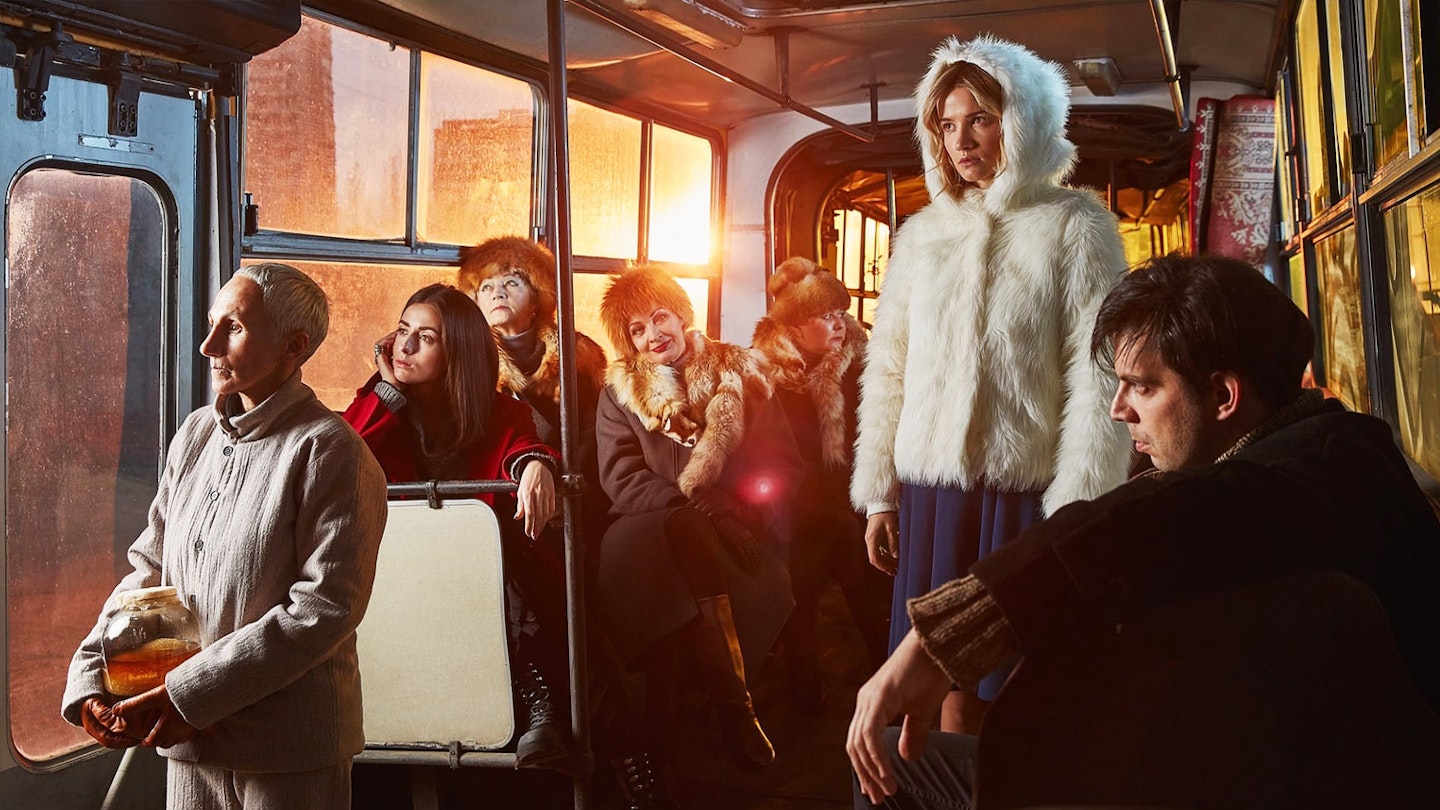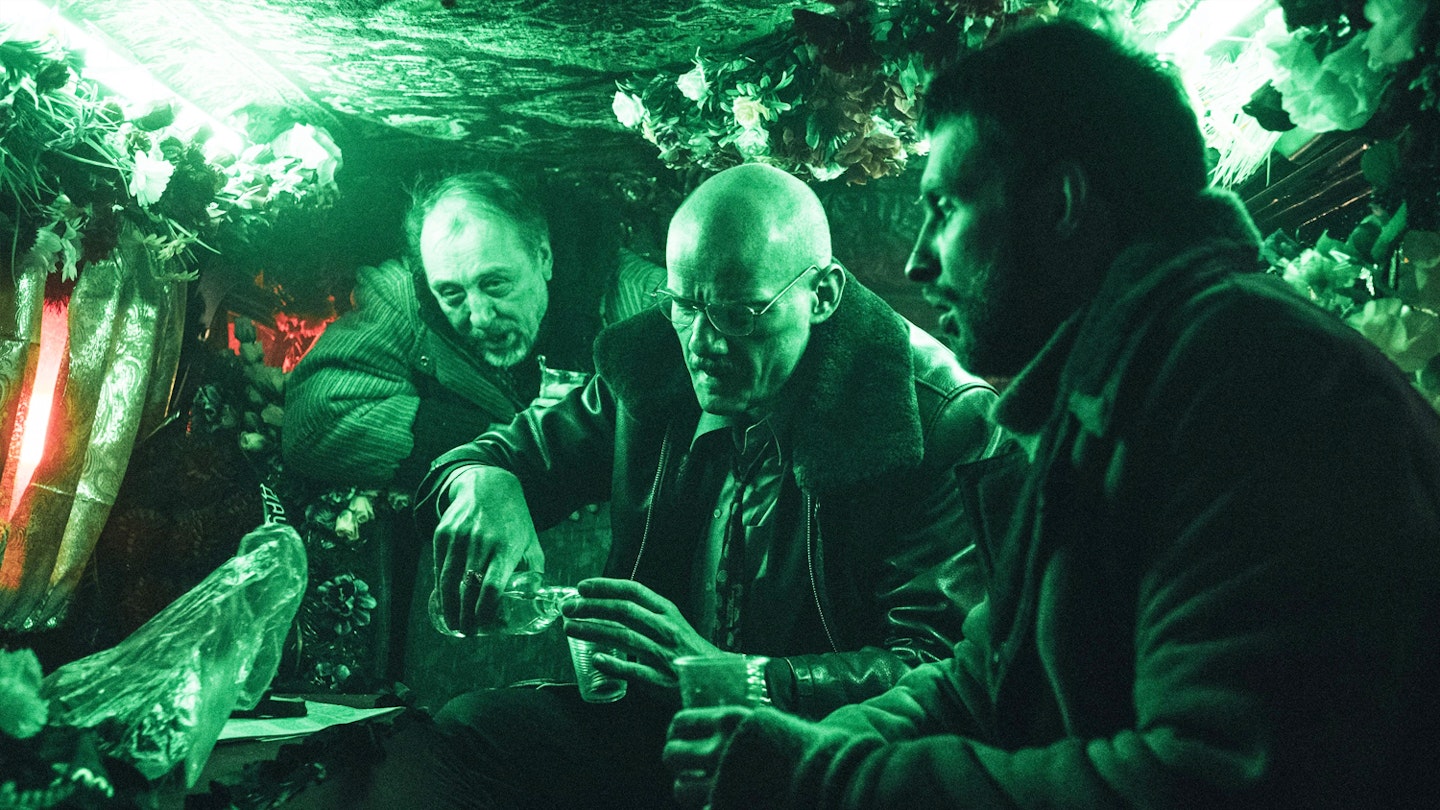Petrov’s Flu is the first film made by Russian director Kirill Serebrennikov since his release from a 20-month period of house arrest (for charges of embezzlement, widely accepted to have been concocted by the state) and consequently has the no-holds-barred quality of a filmmaker let loose. Taking Alexey Salnikov’s novel The Petrovs In And Around the Flu as a jumping-off point, Serebrennikov takes a thin plot-thread — a day in the life of an influenza-ridden comic book writer — and embellishes it with flashbacks, dream sequences, flying saucers, martial arts, rough sex and political satire, all shot through a cold-like fug that wouldn’t shift with a dozen Lemsips.

It starts, on New Year’s Eve, as it means to go on. Petrov (Semyon Serzin), looking more than a bit peaky, gets off a stuffed tram and stumbles into civil unrest, when a police officer shoves a gun in his hand and inducts him into an impromptu firing-squad to kill a gaggle of prisoners. It’s the first in a number of narrative turns that defy logic and explanation. Cut to Petrov’s wife Petrova (Chulpan Khamatova), a librarian who has passionate sex between the book stacks, then presides over a poetry night that turns ugly, forcing her to unleash superhuman fighting abilities to end the argument.
Petrov’s Flu doesn’t develop like a normal chronological narrative; it spreads like a virus, characters picking it up and playing it forward.
And so it goes. It looks like it is going to be a story about Petrov and Petrova getting their sick son (Vladislav Semiletkov) to a hospital, but then Serebrennikov throws in so many narrative handbrake turns that you never really get your footing (as it turns out, the couple’s son is taken up by a UFO because… obviously). We get a flashback to the ’70s, simpler, happier times, with Petrov accompanying his father (Ivan Ivashkin) to a New Year’s Eve party to see the Snow Queen (it’s a warm, nostalgic, much-needed softer edge). Later, the film picks up the story of the actress playing the Snow Queen (Yulia Peresild), Serebrennikov adding a surrealist dream logic where characters appear momentarily naked. Aptly enough, Petrov’s Flu doesn’t develop like a normal chronological narrative; it spreads like a virus, characters picking it up and playing it forward.
It’s a baffling, often frustrating approach, but the filmmaking is always impressive, DP Vladislav Opelyants’ cinematography flitting from jaundiced, hallucinatory imagery — heightened by a snaking camera — to a 4:3 home-movie style for Petrov’s childhood to a beautiful black-and-white for the Snow Queen’s backstory. Serebrennikov puts you right into Yekaterinburg, a twilight world where everyone looks sick, violence can erupt at anytime and all bets are off. Much like 2022, then.
